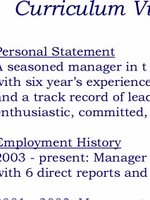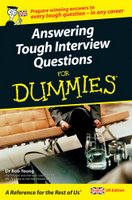Networking: Making a great impact every time
As I mentioned in a previous post, networking matters.
And of course anyone you meet for the first time may ask what you do for a living.
One of the keys to effective networking is to think about your initial response. 'I'm an accountant.' 'I run an HR consultancy.' 'I'm an IT systems manager.' Yes, it might be technically correct to use your job title. But is that how you want to be remembered? Does your job title sum up all the aspects of what you do and capture your experience and tell other people how they can help you?
Probably not.
A friend and contact of mine, Julian Goldsmith, is managing director of PR agency ARC Business. He sometimes describes his work by saying: 'I undertake the writing of press releases, articles, speeches, and reports. I arrange journalist interviews, organize events, and place people in conference speaking slots.' But sometimes he merely says: 'I make business people famous'.
Which do you find more memorable? Which would make you want to hear more?
So the next time someone asks you: 'What do you do?' be sure to think twice about your answer 'cause it's one of the rules of networking.


























